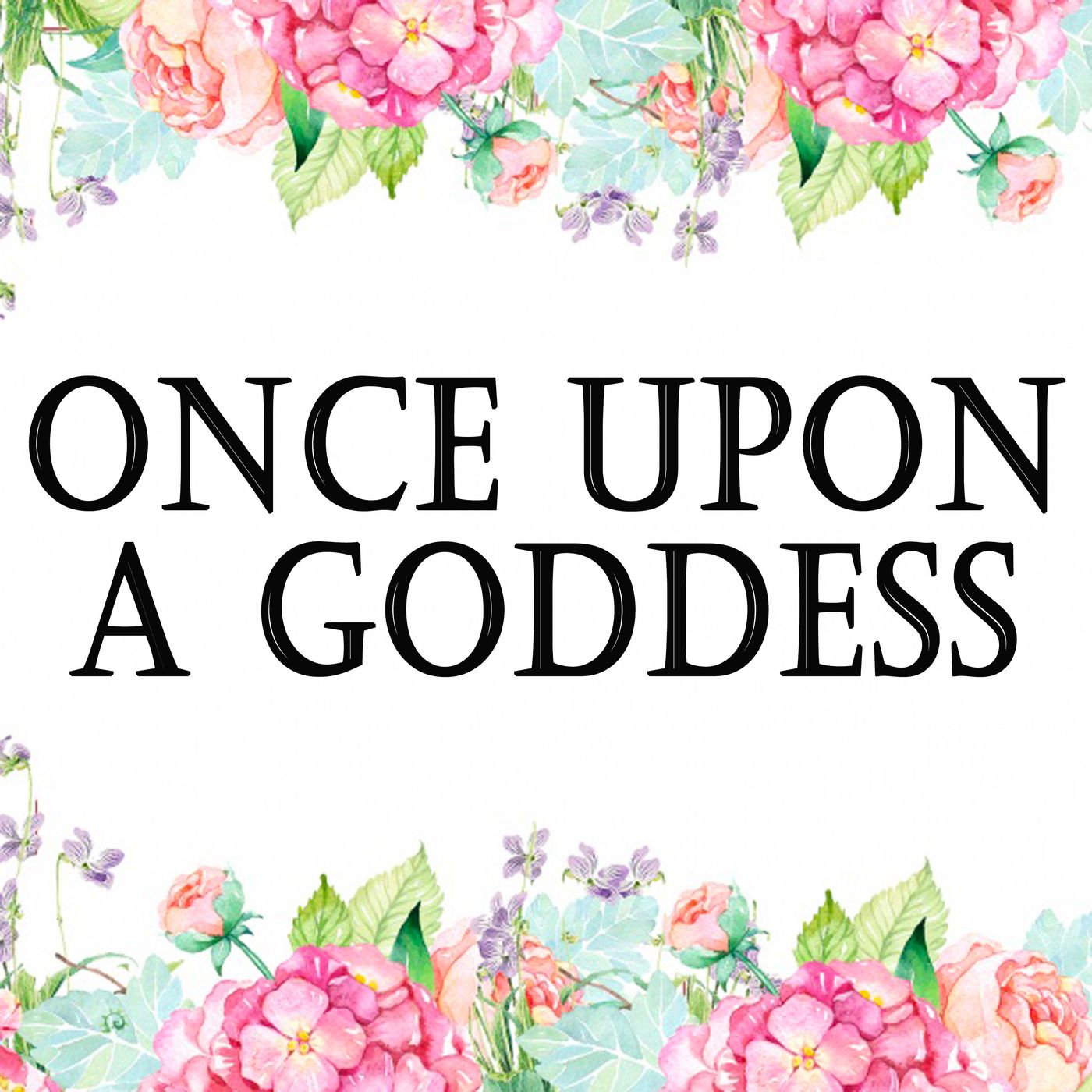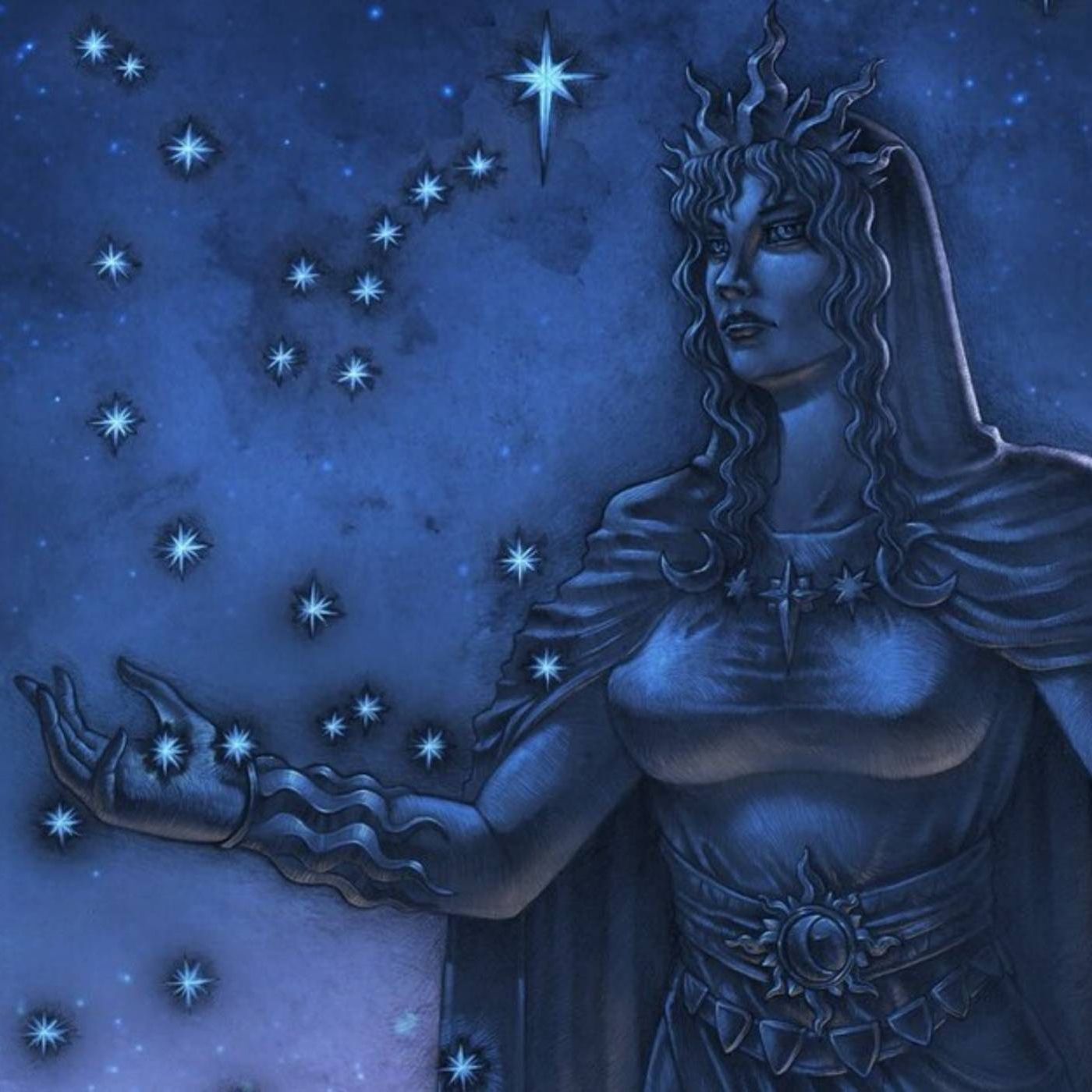Show Notes
We know the word “muse” in the modern sense as being something or someone who inspires us, especially when it comes to creative endeavours. The Nine Muses of Ancient Greece are where that term originates, as their role was to inspire and support mortals with their creative endeavours. Of the nine sisters it was Urania who intrigued me the most as I have a deep love of night sky watching.
I so love that as I was writing and recording Urania’s story, the first images of deep space taken by the James Webb telescope were being shared with the world. Looking at those photos and seeing how people responded with such wonder at what was revealed felt like it was part of Urania’s energy.
 |  |  |
Show Transcript
Urania
Her story begins within a passionate embrace.
When Zeus first saw Mnemosyne (Nem- oh- see- ney) his heart was swept into a rapture that was matched by the titaness’s attraction to him. They fell into each other’s arms and remained entwined for nine days and nine nights; only ended their tryst when the world called them back with its needs.
Their encounter would endure beyond this short time though when Mnemosyne gave birth to nine daughters. In the foothills of Mount Olympus, just below the place of their conception, the sisters were born over nine consecutive days. Each arrived on their own day, and each bought with them their own blessing for the world.
There was Calliope (ka-ly-o-pee) who would inspire epic poetry and eloquent expression. The poets and writers would call to her before they set their pens to parchment and ask her to gift them the words for their written art.
Then Clio who watched over those who wrote the stories of history. Like her mother, she also strengthened memory so that events could be recalled and recorded with truth and accuracy.
The next of the sisters was Euterpe- the muse of music and song. She would inspire musicians, sending them rhythms and melodies, as well as the lyrics to dress their compositions.
While Calliope inspired poems of epic tales and adventures it was Erato who sent her energy out to those poets writing of love and passion.
Melpomene (mel-pom-e-nee) was the muse of tragedy, helping to create stories of heart break, defeat and misfortune.
Polymnia guided those who wrote the sacred poetry of hymns. Her dedication to the sacred also saw her oversee geometry as well as agriculture.
Of the younger sisters it would be Terpsichore (Terp-sick-or-ee) who would call to people to join her in dance. With the river god Achelous, she would birth the Sirens.
Thalia was known as the joyful one, inspiring stories and poems of celebration and mirth.
Then there was the youngest of the sisters who would be named Urania, in honour of their grandfather Uranus. Just as Uranus watched over the skies, his granddaughter and namesake would also look to the heavens and all the wonders they held.
While her sisters were held to the earth by their blessings, Urania was free to look beyond the simple aspects of mortal life. Tragedy and comedy were basic expressions of human life. War and romance were just stories being played out. When she looked out to the stars, Urania remembered how the world of mortals was such a small part of all that her grandparents had created.
Urania saw comets racing to new dimensions while the stars held steady and the planets danced in their own patterns. The Sun rose and set in perfect time, while the Moon swelled and then faded. Each one of them a reminder to all that they did so regardless of the stories being played out beneath them.
The more Urania observed, the more she realised how steadfast the heavens were. Even though a comet or eclipse seemed extraordinary and random, when you watched for long enough they too were part of the pattern of the universe.
So Urania kept watching and soon she also saw that the dance above effected the dance below.
Because just as she had been born of a union between Zeus and Mnemosyne, the heavens and earth were born of the grandfather Uranus and grandmother Gaia.
Uranus ruled the heavens, while Gaia birthed and watched over the lands and creatures that lived within the mortal world. They had begun this symphony and everything -EVERYTHING- within it was part of an orchestra playing the music.
Now Urania could truly give her blessing to the world. She could show everyone the perfection in which the skies held their own knowledge to share.
The youngest muse would guide the astronomers who loved the heavens as much as she did. Urania would give them compasses and sextants to measure and record the smallest details. But she would also remind them of the infinite beauty her grandfather had created.
For when one knew both the grand majesty as well the delicate details, then the heavens revealed their wisdom. It was a wisdom that could be called to earth to understand life even more. It could be weaved into knowing the seasons for better harvests, and it could be used to know our own personal patterns to guide and plan life.
Through all these studies and contemplations, Urania would be there, breathing her love and inspiration; hoping that when one took time to see the beauty beyond their world, it would also let them see the beauty around them, and eventually the beauty within them.
When we know the world and heavens around us are created by Gods and Goddesses, then too we can remember those deities also placed us perfectly within their creation. Not only are we part of their creation, but we are also their embodiment to experience it all, in awe and wonder of its beauty and grandeur.
Listen On
Also Listen
-
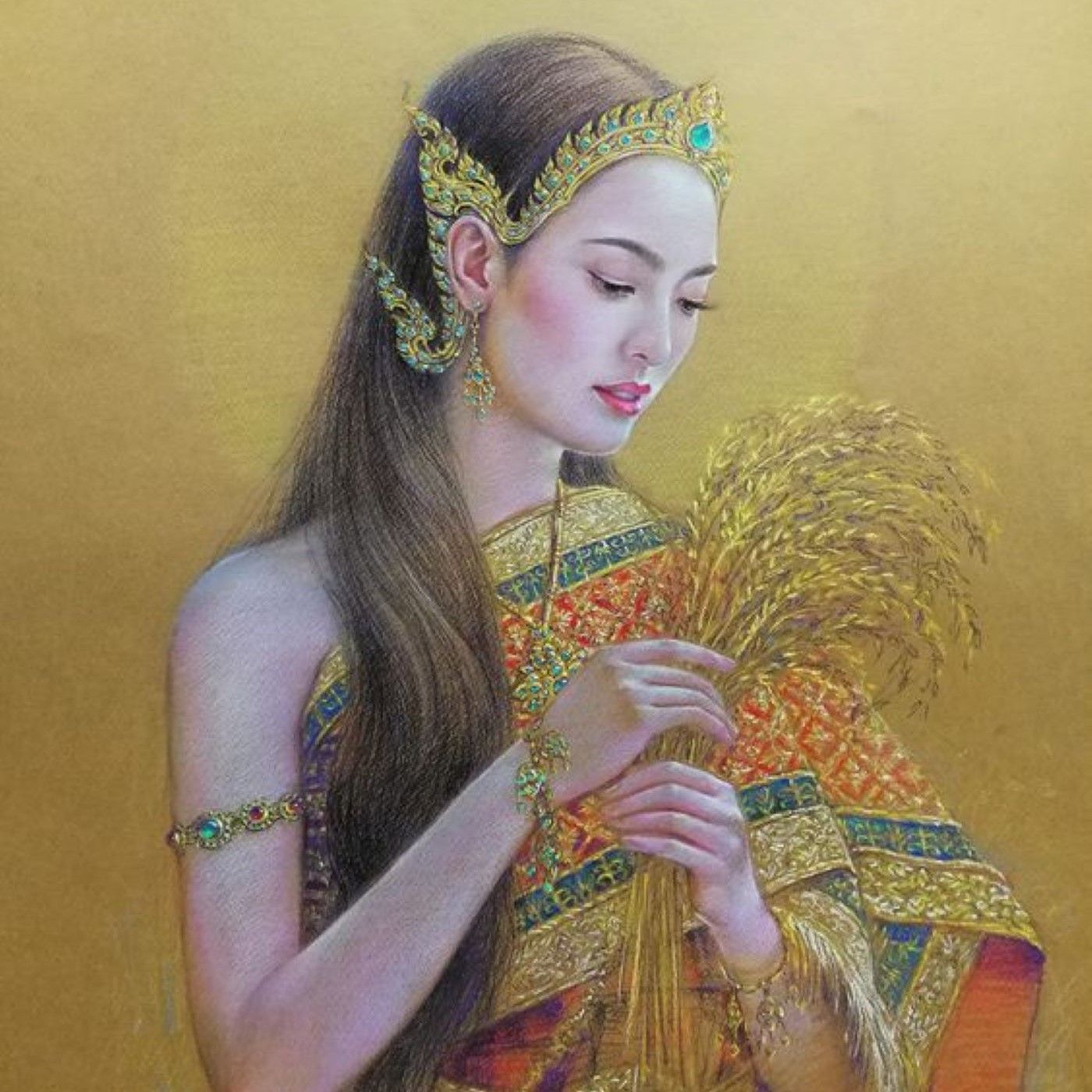
Dewi Sri - The Rice Goddess
Dewi Sri is not your usual goddess of grain and harvest. Born as a gift to the K -
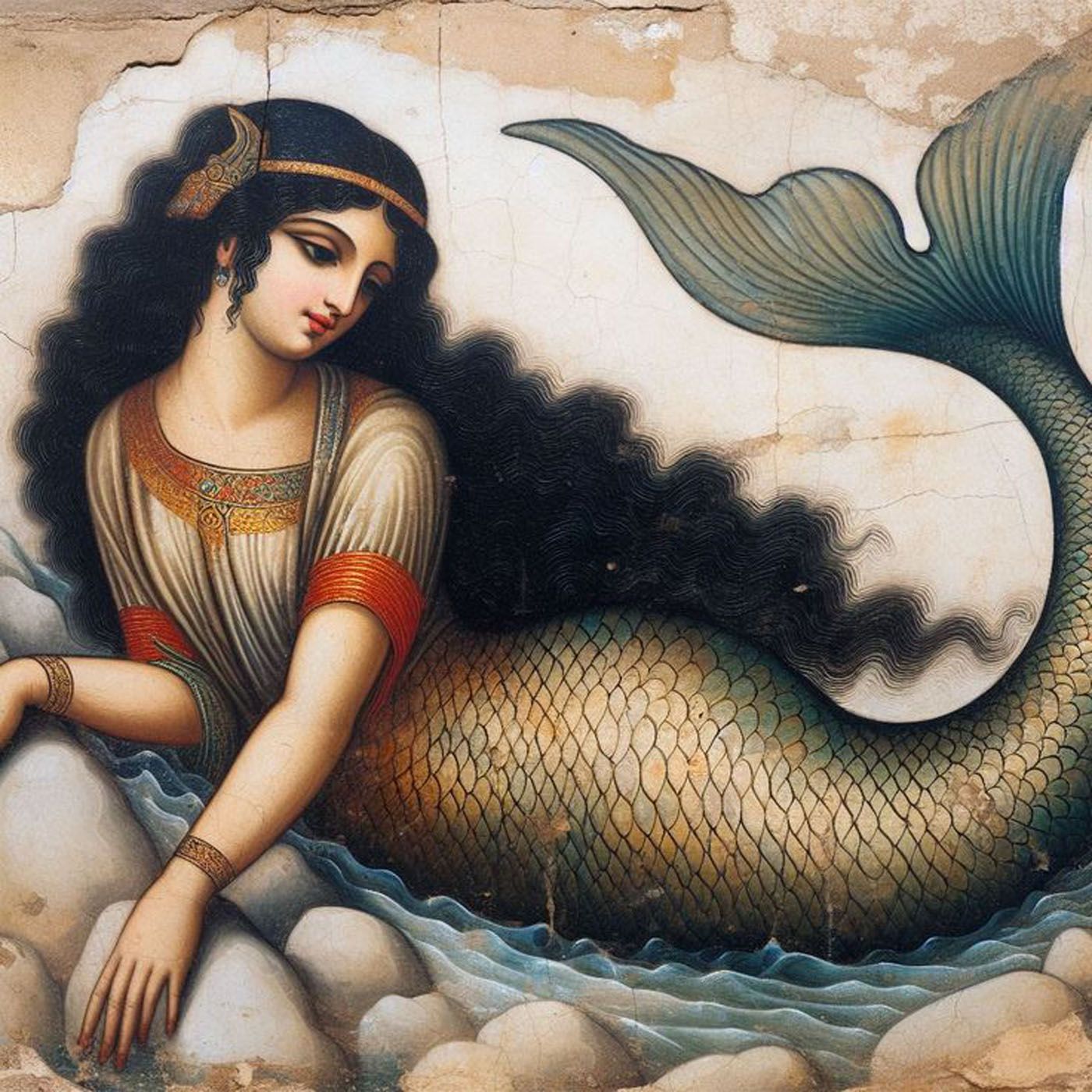
Atargatis - The First Mermaid
The powerful emotions of human life can lead to great transformations. Atargatis -
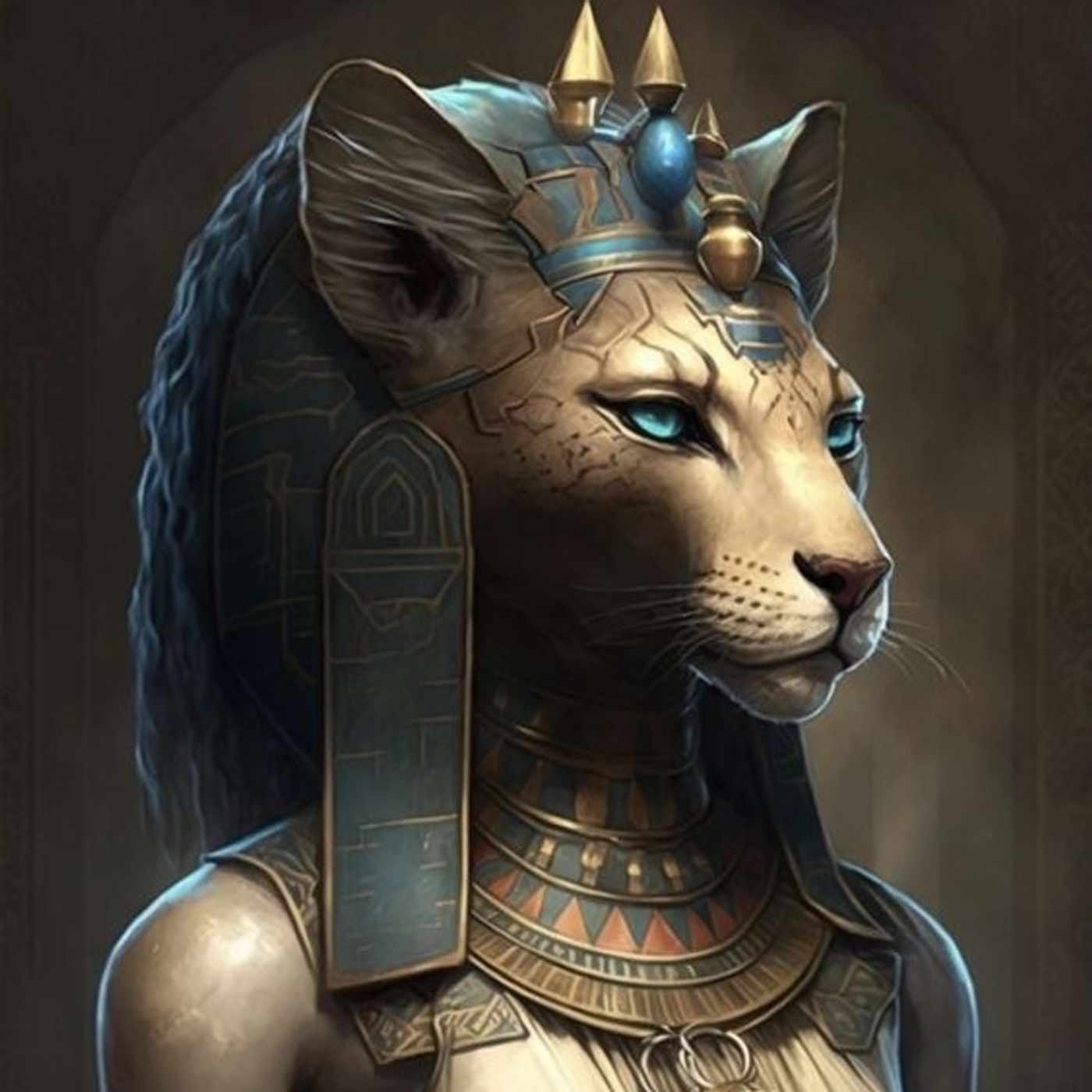
Sekhmet - The Lioness of Balance
The world and it's people live in a balance that is both fragile and all encompa -
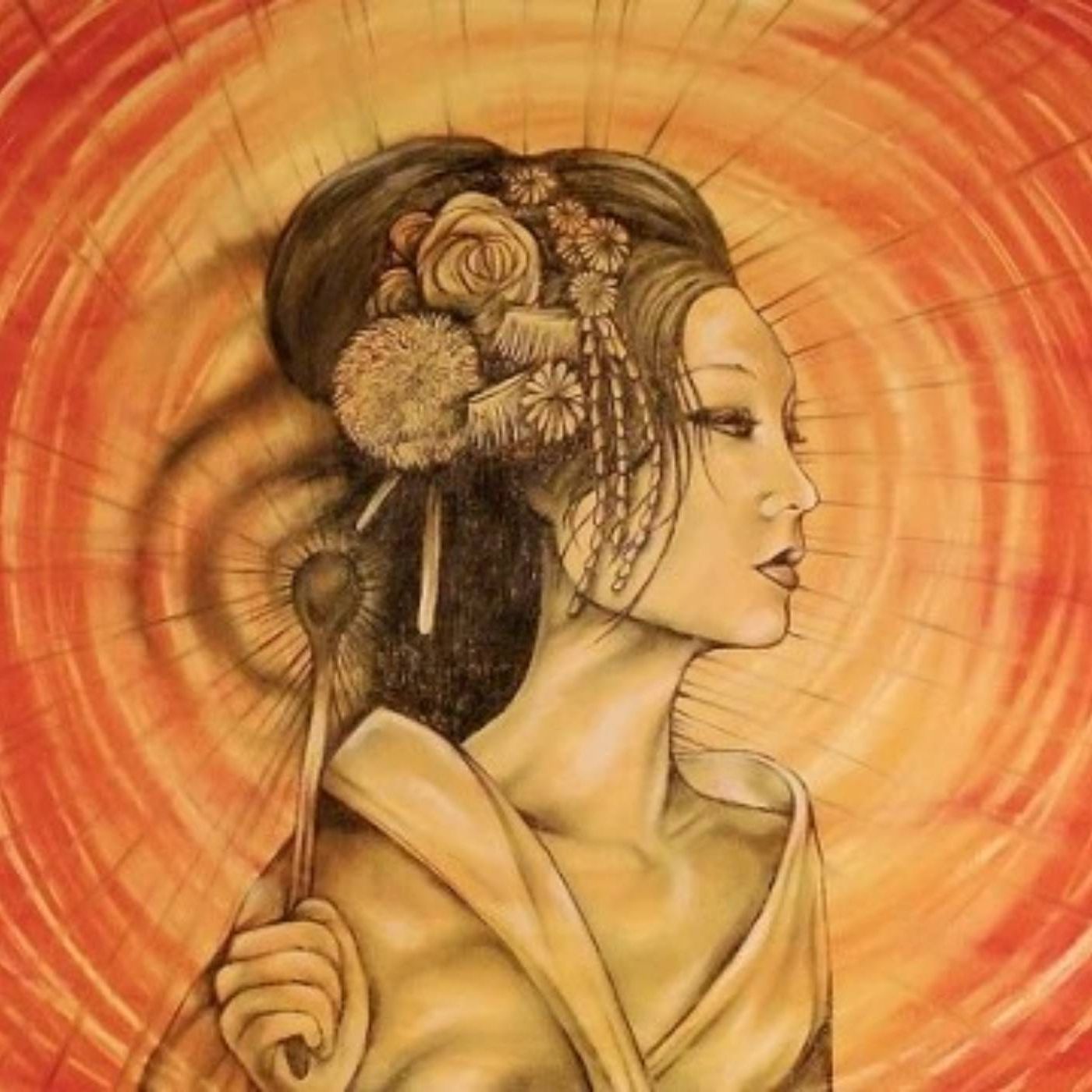
Amaterasu -The Goddess of Light
Amaterasu is the Japanese Goddess of Light. When Amaterasu is grief stricken and
